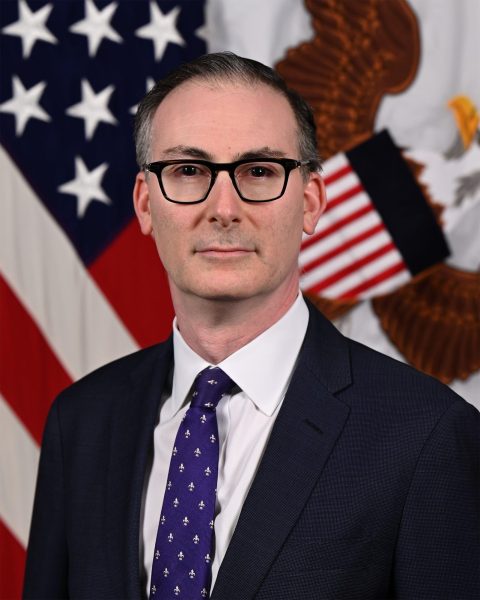A high level federal defense official under President Joe Biden will join Georgetown University’s School of Foreign Service (SFS) in August 2025, the university announced March 11.
Michael Sulmeyer, the former assistant secretary of defense for cyber policy under Biden, will serve as a professor in the SFS and as the new director of cyber programs within the Security Studies Program (SSP), a multidisciplinary master’s degree preparing graduates for defense and security careers. Sulmeyer shaped cyber policy and operations during his tenure at the U.S. Department of Defense, U.S. Army and other senior military posts and previously worked as a senior fellow at Georgetown’s Center for Security and Emerging Technology (CSET), a technology-focused security policy think tank.

Sulmeyer said he hopes to bridge the gap between academic studies and professional pathways in cyber studies for students.
“I want to try to get students excited about where they want to go work after graduation and not have it be a hard break between being a student and finding a job,” Sulmeyer told The Hoya. “I want the experience of being a student to be instructive to what the student wants to do as their first or second move outside of education.”
As director of cyber programs in the SSP, Sulmeyer will teach courses on cybersecurity, national security decision-making and the role of emerging technologies in cyber operations.
Daniel Byman, SSP director, said Sulmeyer’s appointment is a significant addition to the program’s faculty given the growing importance of cyber policy in national security.
“Sulmeyer is one of the world’s top experts on cybersecurity policy,” Byman wrote to The Hoya. “He brings to SSP and Georgetown a wealth of knowledge from his many years as a senior official in government on this critical issue.”
Sophia Sfiroudis (SFS ’26), a science, technology and international affairs major concentrating in cybersecurity, said cyber studies is a crucial, ever-changing area of study.
“I think cyber studies at Georgetown is a very important and rapidly evolving field because cybersecurity and threats to that security are only emerging at a faster and faster rate,” Sfiroudis wrote to The Hoya.
“The interconnections between cybersecurity, global affairs and the energy sector are all very important tenets within political affairs and foreign service, which is why I think cyber studies specifically is of massive interest right now,” Sfiroudis added.
Sulmeyer said he plans to illustrate the pragmatic implementation of cyber policy, drawing from his experience in the field.
“I want to talk about the practical realities of working through cyber tasks,” Sulmeyer said. “What I want to bring as the former assistant secretary is that experience to say, here’s how you actually try to do it.”
Sulmeyer said he looks forward to collaborating with Georgetown students and faculty to further contribute to the field of cybersecurity.
“There’s a lot of wonderful talent that the university has to bring to bear, and I’m eager to meet the students and other faculty who are committed to these issues and to see where I can help,” Sulmeyer said.
Byman said Sulmeyer’s addition to the faculty reinforces SSP’s mission to offer students the opportunity to connect with expert voices to explore pressing security challenges.
“Security Studies seeks to prepare its students to handle today and tomorrow’s top security issues,” Byman wrote. “This includes giving students a deep understanding of how technology is shaping national security as well as important issues like the rise of China and the changing role of the United States.”
Sulmeyer, who previously worked at Harvard University, said he returned to academia to prepare students for careers in national security, particularly in cyber policy.
“Coming out of five years of being in public service on this issue, I want to use my time now to build the bench for people who want to go in — whether they’re Republicans or Democrats — who want to contribute to our national security,” Sulmeyer said.